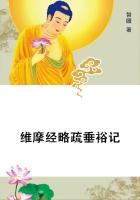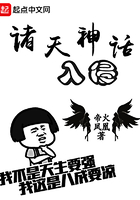He was happy then, and without a care in the world. A meal together, a walk in the evening on the highroad, a gesture of her hands over her hair, the sight of her straw hat hanging from the window-fastener, and many another thing in which Charles had never dreamed of pleasure, now made up the endless round of his happiness. In bed, in the morning, by her side, on the pillow, he watched the sunlight sinking into the down on her fair cheek, half hidden by the lappets of her night-cap. Seen thus closely, her eyes looked to him enlarged, especially when, on waking up, she opened and shut them rapidly many times. Black in the shade, dark blue in broad daylight, they had, as it were, depths of different colours, that, darker in the centre, grew paler towards the surface of the eye. His own eyes lost themselves in these depths; he saw himself in miniature down to the shoulders, with his handkerchief round his head and the top of his shirt open. He rose. She came to the window to see him off, and stayed leaning on the sill between two pots of geranium, clad in her dressing gown hanging loosely about her. Charles, in the street buckled his spurs, his foot on the mounting stone, while she talked to him from above, picking with her mouth some scrap of flower or leaf that she blew out at him. Then this, eddying, floating, described semicircles in the air like a bird, and was caught before it reached the ground in the ill-groomed mane of the old white mare standing motionless at the door. Charles from horseback threw her a kiss; she answered with a nod; she shut the window, and he set off. And then along the highroad, spreading out its long ribbon of dust, along the deep lanes that the trees bent over as in arbours, along paths where the corn reached to the knees, with the sun on his back and the morning air in his nostrils, his heart full of the joys of the past night, his mind at rest, his flesh at ease, he went on, re-chewing his happiness, like those who after dinner taste again the truffles which they are digesting.
Until now what good had he had of his life? His time at school, when he remained shut up within the high walls, alone, in the midst of companions richer than he or cleverer at their work, who laughed at his accent, who jeered at his clothes, and whose mothers came to the school with cakes in their muffs? Later on, when he studied medicine, and never had his purse full enough to treat some little work-girl who would have become his mistress?
Afterwards, he had lived fourteen months with the widow, whose feet in bed were cold as icicles. But now he had for life this beautiful woman whom he adored. For him the universe did not extend beyond the circumference of her petticoat, and he reproached himself with not loving her. He wanted to see her again; he turned back quickly, ran up the stairs with a beating heart. Emma, in her room, was dressing; he came up on tiptoe, kissed her back; she gave a cry.
He could not keep from constantly touching her comb, her ring, her fichu; sometimes he gave her great sounding kisses with all his mouth on her cheeks, or else little kisses in a row all along her bare arm from the tip of her fingers up to her shoulder, and she put him away half-smiling, half-vexed, as you do a child who hangs about you.
Before marriage she thought herself in love; but the happiness that should have followed this love not having come, she must, she thought, have been mistaken. And Emma tried to find out what one meant exactly in life by the words felicity, passion, rapture, that had seemed to her so beautiful in books.














